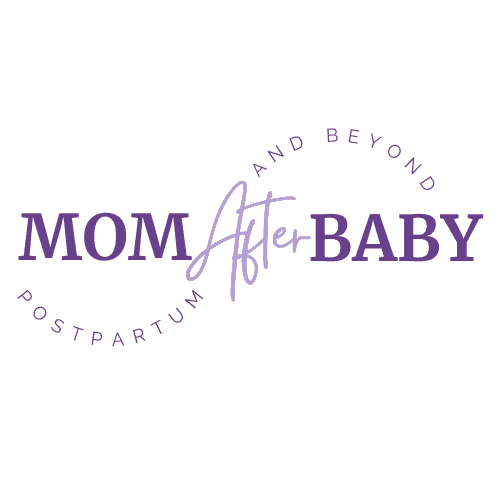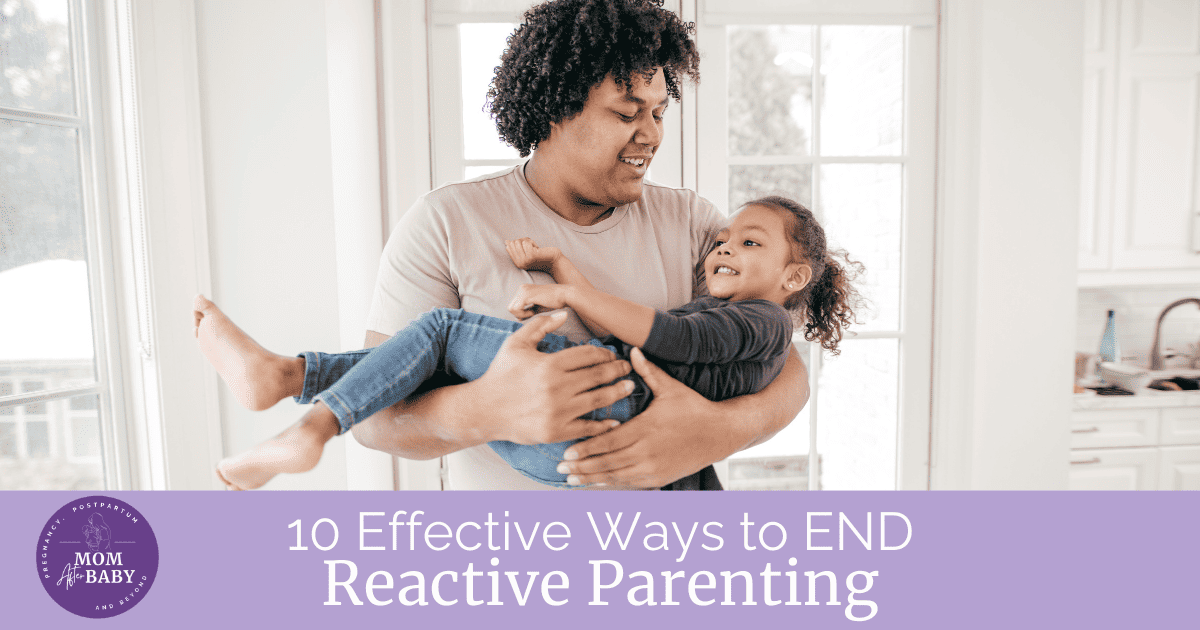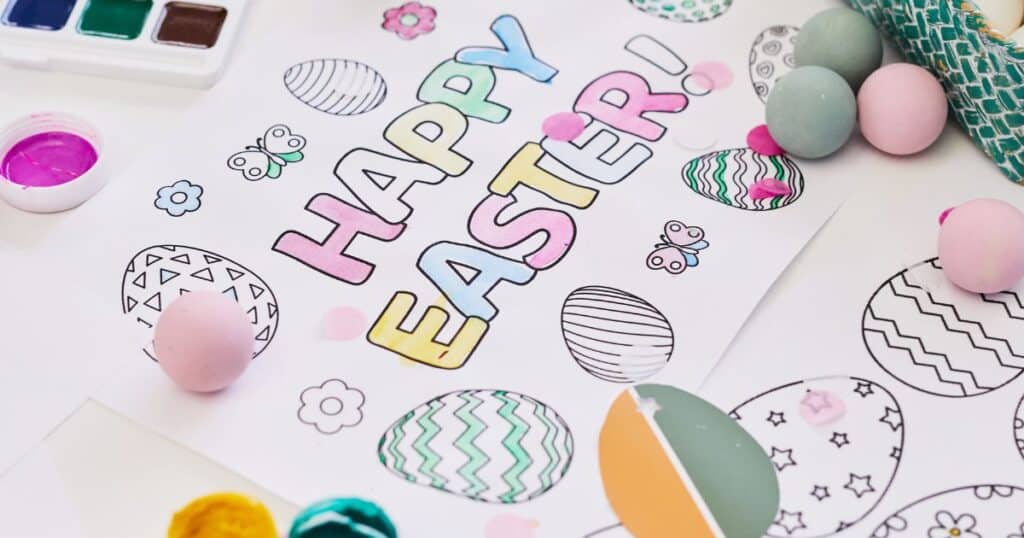Reactive Parenting: From Chaos to Calm
This post may contain affiliate links that I may receive a commission from if you click & buy. In addition, the information on this site is NOT intended to be medical advice. See my full policy for more information.
Parenting can be an overwhelming journey filled with challenges, emotions, and uncertainties. Reactive parenting can take those challenges and make them even harder. In this article, we’ll explore 10 actionable steps all parents can take to help you break free from reactive parenting and foster a calmer, more favorable environment for yourself and your children.
When we respond impulsively and emotionally to our children’s behavior — remember it’s a natural reaction. But it’s essential to move away from this approach and create a more harmonious home for our families. In this article, we’ll explore 10 actionable steps to help you break free from reactive parenting and foster a calmer, more positive environment for you and your children to thrive.
What is Reactive Parenting?
If you’ve ever found yourself losing your cool, responding impulsively and emotionally to your child’s behavior — that is reactive parenting. The stresses may show up randomly throughout your parenting journey, or it very well could be a stress response to someone that has happened during your own childhood. High emotions in your daily life can cause this type of parenting.
Though a very natural reaction for many of us, it’s essential to spend some time reflecting and learning how we can move away from this approach to create a more harmonious home for our families.
Parents who are more reactive to their child’s behaviors often have a hard time remaining calm and connected with their children during difficult moments. This can lead to even more disruptive child behaviors, inefficient parenting patterns, and an unhealthy relationship between parent and child.
In a 2012 study by Oregon State University — they found that ” parents of young children who anger easily and overreact are more likely to have toddlers who act out and become upset easily.”
So, if you’re reading this thinking, “Oh sh!t…I’m a reactive parent”, take a deep breath. We ALL have things that trigger us when it comes to our children, but the key to a more effective parenting approach is to move through the triggers that make you reactive instead of reacting to them.
You have what it takes to have a calmer mind by setting healthy boundaries and creating a calm space. You are a good mother even if you’re feeling like you’re not – and just know that you’re capable of real change. A calmer home is in your future.
10 Tips to Break the Cycle of Reactive Parenting:
A dear friend of mine, Bryana Kappadakunnel — a Licensed Marriage and Family Therapist with more than a decade of experience working with children and families, once said, “Kids are triggering – it’s a fact of life. They are triggering for a distinct purpose: They are triggering because they are revealing within us what is not yet healed.“
Feeling constantly reactive doesn’t need to be the norm for you and your family. Use the tips below to help break the cycle of reactive parenting and start shifting toward being a more conscious and mindful parent.
1) Focus on Your Healing
The first step to putting an end to reactive parenting is to stop focusing on your child’s behaviors as the problem to fix and instead understand what your own emotions are trying to tell you. Think of it as a little proactive parenting instead.
Once you determine what your triggers are and what they’re trying to tell you — then you can enact meaningful change to being less reactive.
In fact, this online private parenting group, led by a Licensed Marriage and Family Therapist with 11+ years of helping families strengthen their relationships through parenting — has been transformative in helping me uncover my own triggers and understand them while feeling supported along the way.
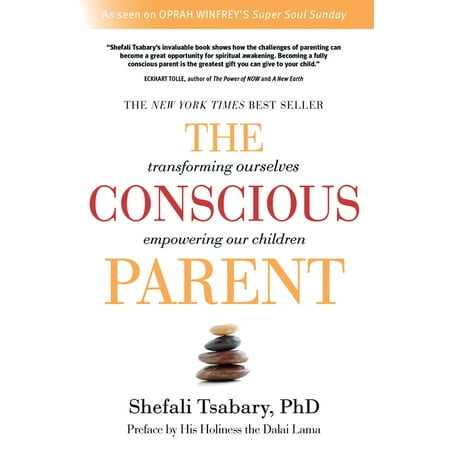
I also LOVE this parenting book by. It really emphasizes the importance of the self-healing work needed for parents.
2) Be Aware and Be Mindful
Ending reactive parenting means cultivating mindful awareness (yes, even in those toughest moments). You can do that by pausing and taking a few deep breaths when you feel triggered by your child’s behavior. Become more attuned to your emotions and reactions, allowing yourself the time to respond thoughtfully rather than reacting impulsively.
Trust me, I get it. Your little one is having back-to-back temper tantrums, they’re crying, kicking, and screaming — and your nervous system is on overdrive ready to explode. THOSE are the moments where this work matters and truthfully where it makes all of the difference.
It could be the difference between finally calming the storm or jumping into one headfirst.
3) Practice Self-Care & Stop Neglecting YOUR Needs
As moms, it’s easy to put our needs last, but self-care is essential for maintaining emotional balance. Engage in activities that rejuvenate and recharge you.
Whether it’s reading a book, taking a walk, or spending time with friends, (for more self-care ideas, check out our post with 25 self-care ideas for busy moms) taking care of yourself will help you respond more calmly to your children’s actions.
4) Master The Skill of Setting Clear Boundaries
Believe it or not, boundaries help to establish trust and safety in a healthy relationship, especially with our children.
Establishing clear and consistent boundaries may feel like a completely new approach to you, but with practice, it will get easier. You’ll find the power struggle over getting dressed for school every morning becomes less and less of a challenge.
You’ll notice yourself confidently managing your child’s tantrums with less anger and frustration and more compassion and guidance.
The key is to communicate your expectations in a firm but loving manner. You’ve likely heard this mentioned before by some of your favorite gentle parenting or conscious parenting experts — because truly, it works and it’s crucial to help break the cycle from the reactive parenting style.
5) Prioritize Communication
Healthy communication is key to nurturing a positive parent-child relationship. Encourage open dialogue with your children, actively listening to their feelings and concerns.
Toddlers and young children are in a critical phase of language development, where they’re absorbing and learning words at an astonishing rate. Engaging in meaningful conversations with your little ones can have a profound impact on their cognitive growth — even during difficult moments like during a meltdown or a quick tantrum in the grocery store.
So, how can parents prioritize healthy communication with their children:
- Maintain a curious, non-judgemental attitude.
- Encourage your child to talk about their day.
- Listen, and then repeat what they stated or shared to ensure you heard what they said correctly.
- Share your thoughts, feelings, and beliefs with them too.
- For younger children, help narrate their activities or emotions.
6) Discipline Effectively
Reactive parenting often involves punishments, threats, or even judgment that may not align with the situation at hand.
Instead, focus on using discipline techniques that promote learning and growth. Remember, you’re also your child’s teacher. They need you to guide them and show them the correct or appropriate ways for navigating problems — not just scolding them for the way they chose to handle it.
For example, let’s say your child throws the TV remote after you asked them to turn it off 4 times.
The reactive approach might be to: Yell at them for throwing the remote and send them to their room to ‘think about their bad behavior’.
The calm, connected, and conscious approach would be to: Get down to their level and validate their feelings, “Hey bud, I know you’re upset TV time is over.“; Then hold a boundary, “But, we cannot throw the TV remote. That’s not okay.”; Lastly, you’ll help them solve the problem, “How can we handle this next time we’re feeling upset over the TV?“.
If the behavior persists, you can introduce the consequence after the boundary: “But, we cannot throw the TV remote. That’s not okay. If it happens again, we’ll be all done with TV for the day“.
7) Model Emotional Regulation
Modeling emotional regulation is a crucial aspect of parenting that holds long-lasting benefits for toddlers and young children, in fact, for just about any child.
Because emotional regulation is an essential life skill. One that many of us (myself included) didn’t get taught effectively when we were children ourselves.
As we all know, toddlers and young children are like sponges. They absorb information from their surroundings and especially from their parents — their safe haven, their guide, their protector.
When toddlers and young children observe you handling your emotions in a composed and balanced manner, it teaches them to do the same. Sure, they may not get the hang of it right away, but it sets the foundation for their own emotional well-being and social interactions.
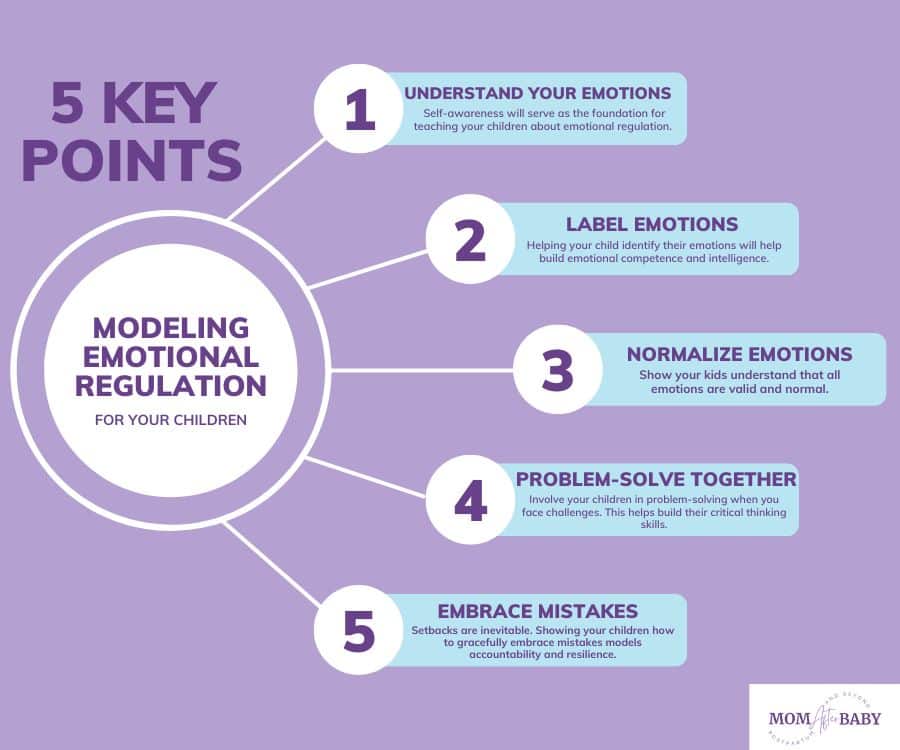
8) Practice Empathy
Empathy is a powerful tool in ending reactive parenting. Though most are probably expecting me to say have empathy for your children (yes, you should), you should also extend some empathy to yourself.
Yes, empathizing and validating your child’s emotions lets them know you understand what they’re going through. It helps them to know that you are a safe space for them to express themselves openly. This not only helps them develop emotional intelligence but also strengthens the parent-child bond.
However, the caveat comes in because if you struggle to show yourself empathy, then you’re probably going to struggle to show your child empathy. And no, we’re not talking about passive parenting here, that’s a whole different ballgame.
So, practice a few times a day, expressing meaningful empathy towards yourself. That might look like:
- “Yes, this moment is so challenging for me, and I yelled, but I was doing the best I could at that moment and I’ll try again next time”
- “I didn’t play with my child today because work got ahead of me. I’m not happy about it, but I had no control and I’ll make time tomorrow”.
9) Introduce Stress-Reducing Techniques
Too much stress can easily contribute to reactive parenting, so it’s essential to have stress-reducing techniques in your toolbox.
Whether you’re a busy mom working a 9 to 5 job, totally tapped out by the time you get home. Or, maybe you’re a stay-at-home mom who has spent way too many days with her kids and you just need a break to engage with someone other than a child for your sanity. Many times, these situations are inevitable.
So, we must find a way to work with them by offloading some of that stress before we bring it home to our kids, to our families, and to ourselves.
Some quick and easy stress-reducing techniques to try:
- Meditation
- Yoga
- Deep breathing exercises
- Listening to music
- Journaling (this journal has some incredible prompts)
- Engaging in enjoyable, calming hobbies
So, the next time you’re feeling your stress levels building up put the pause button on stress by doing some of these mindfulness practices for a little bit of time throughout your day.
10) Seek Support and Learn from Mistakes
Lastly, remember that parenting is a journey of growth and learning. Don’t be too hard on yourself when you slip into reactive patterns occasionally — we’re only human.
To make life as a parent a little easier, seek out support from other moms, parenting communities, or professionals if needed. Seriously, there’s no shame in asking for help. There’s a reason they say that it takes a village.
Another crucial part of parenting is to acknowledge your mistakes, learn from them, and commit to a more responsive parenting approach.
Are you feeling committed to ditch the days of being a grumpy, reactive parent and embracing a little more peace in your life?
Reactive Parenting Conclusion
Breaking the cycle of reactive parenting requires dedication, patience, and a commitment to change your old and likely comfortable ways.
By following the 10 tips above, such as practicing mindful awareness, setting boundaries, communicating effectively, and prioritizing self-care, you’re making a conscious decision to be on the path that creates a more positive and harmonious environment for your family.
Growth in parenthood is never linear, so don’t forget to extend some grace to yourself as you embark on this brave next step in your parenting journey. Which of these tips sounds the most helpful for you at this stage in motherhood?
Read more motherhood articles here:
